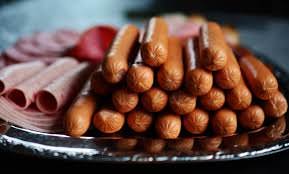
source : nadianu.com
Hi all
I want to point out first of all that the following represents my own view of dieting and weight loss, as I am aware that there is a ton of written advice available all over the internet and much of it conflicting. Much of the stuff you read on the net is of course backed by commercial interest – somebody trying to sell their latest weight loss diet plan or by a company in the weight loss business or diet food industry, and so it cannot be relied upon to be unbiased, or in some cases even totally correct.
Also a lot of people have unrealistic expectations when it comes to losing weight. They want, and expect, a diet plan to allow them to shed a lot of weight in a short space of time, and I would say that this is just not possible without extreme measures that could harm your health. The desire for most people is to lose significant weight and then keep it off, and it is the maintenance of an acquired goal weight which can be just as difficult as getting there in the first place. Most people become overweight gradually over the course of years due, in the main, to an unhealthy diet coupled with a lack of exercise, so it is ridiculous to expect to lose a lot of weight overnight, or even in a matter of weeks no matter what the diet foods and plans promise…
If you are carrying excess weight I believe it is possible to reduce this gradually over a period which varies from person to person depending on age, determination, and the type of diet, but if you lose say 2 pounds a week or so then you are doing well. The key to success is consistency and persistence. A reasonable goal to set for yourself might be to lose 10% of your total weight over a year, or say 5% over six months. This might not sound like a lot but in physiological terms this can benefit your health enormously provided you can then prevent that weight from being put back on!

source: adrn.ac.uk
One of the problems with dieting is that, after a noticeable initial weight loss you often reach a plateau and nothing more seems to happen for a while, and this is one reason why a lot of people give up. It is essential to carry on with your diet and exercise regime to break through this barrier and to eventually achieve further weight loss. This plateau effect is something to do with the body noticing a rapid drop in calorie input and then switching to an evolutionary protective mode which for early man might have saved him from starvation when food was scarce, but which now is inappropriate. Gradually though, the body can be trained to accept a lower daily calorie input which of course is the basis of effective weight loss.
The basic principle to losing excess weight is, as most know, to take in on a daily basis, less calories than you use up, thus creating a calorie deficit. The theory behind this that then your body is forced to use up some of its energy reserves which are stored as fat. I believe this principle is sound, but, in practice rather more difficult and complicated to achieve than at first sight.
In order to reduce your daily calorie intake you have to eat less quantities of food and/or less energy dense food. Digested food is broken down to glucose in the blood and this is the body’s main source of energy. Too much sugar ingested though, causes an excess in the body and this is converted to fat and stored as such.
So the logical approach to losing weight is to eat less in total quantity of food daily, ideally gradually reducing portion size at meals, and less of the foods easily converted to energy. This means a reduction in carbohydrates and an increase in protein. Protein can be converted to energy (and this is the basis of the Atkins diet) by means of a different metabolic pathway but when you are consuming plenty of fat and carbohydrate this pathway doesn’t get triggered. Increasing your protein intake helps to minimise muscle loss which can otherwise occur when dieting and also helps with a feeling of fullness, probably because it takes longer to digest than simple carbohydrates
The way to reduce calorie intake is to eat as much fresh food as possible and minimise processed foods since these tend to contain a lot of sugar. Some fat is essential in our diet so it is a mistake to try to eliminate it altogether, and unfortunately many so-called “low fat” foods contain increased amounts of sugar which negates any benefit, but if you avoid as much as possible the processed foods like yoghurts, biscuits, cakes, pies and sauces for example then it’s fine. Processed foods containing both fats and carbohydrates such as doughnuts, pastries and pies are some of the worst to consume if you are trying to lose weight.

source: pexels.com
Another advantage of eating mainly fresh foods is that you can increase your intake of fibre, especially from fruit and vegetables. Fibre helps maintain a healthy digestive system and also has the benefit of making you feel full thus discouraging over-eating. Fibre may also help reduce the absorption of carbohydrates to some extent.
As well as improving your diet you certainly should try to increase your amounts of regular physical exercise when trying to lose weight. This will benefit your general health and fitness level as well as mopping up excess calories absorbed from food and encouraging a vigorous metabolism. It is not necessary, or even desirable however, to over exercise. Apart from the risk of injury, studies have shown that attempting to maintain an extreme exercise regime leads to increased stress and is counter productive. Any kind of aerobic exercise like cycling, swimming, running, or dancing, is helpful but so too is some kind of resistance training or weight lifting in moderation

source: flikr.com
It is probably best to try to eat only when you feel hungry and then stop as soon as you begin to feel full. Don’t let yourself get to the point where you are feeling starving hungry or ravenous because then you are likely to not eat the right kinds of foods but grab whatever is available or is quick and easy.
In order to be able to check your calorie intake each day you will probably need to do calorie counting or at least tracking of the kinds of foods you’re eating in order to make sure they comprise sufficient protein and fibre and not too much fat and carbohydrate. Include in your calculations drinks as well as foods and be aware that many juices and soft drinks have high levels of sugar.
So, if you look upon losing excess weight as a medium to long term project with realistic goals set upon the way then success is certainly possible. However it is often difficult to change eating habits of a lifetime and you need to keep in mind the eventual benefits in order to stay motivated. Try to put out of your mind the “quick fix” type of diet plans constantly waved at you by advertisers and also stay away from artificial “diet” foods like shakes and special biscuits or bars because these are not proper foods but simply manufactured products.
Try to eat natural produce as fresh as possible and minimise the consumption of fast foods and processed foods and you will become healthier and should gradually shed excess weight too.pic healthy food You know this makes sense. I know it’s not that easy – but I have to tell it like it is. It can be done!

source: en.wikipedia.org